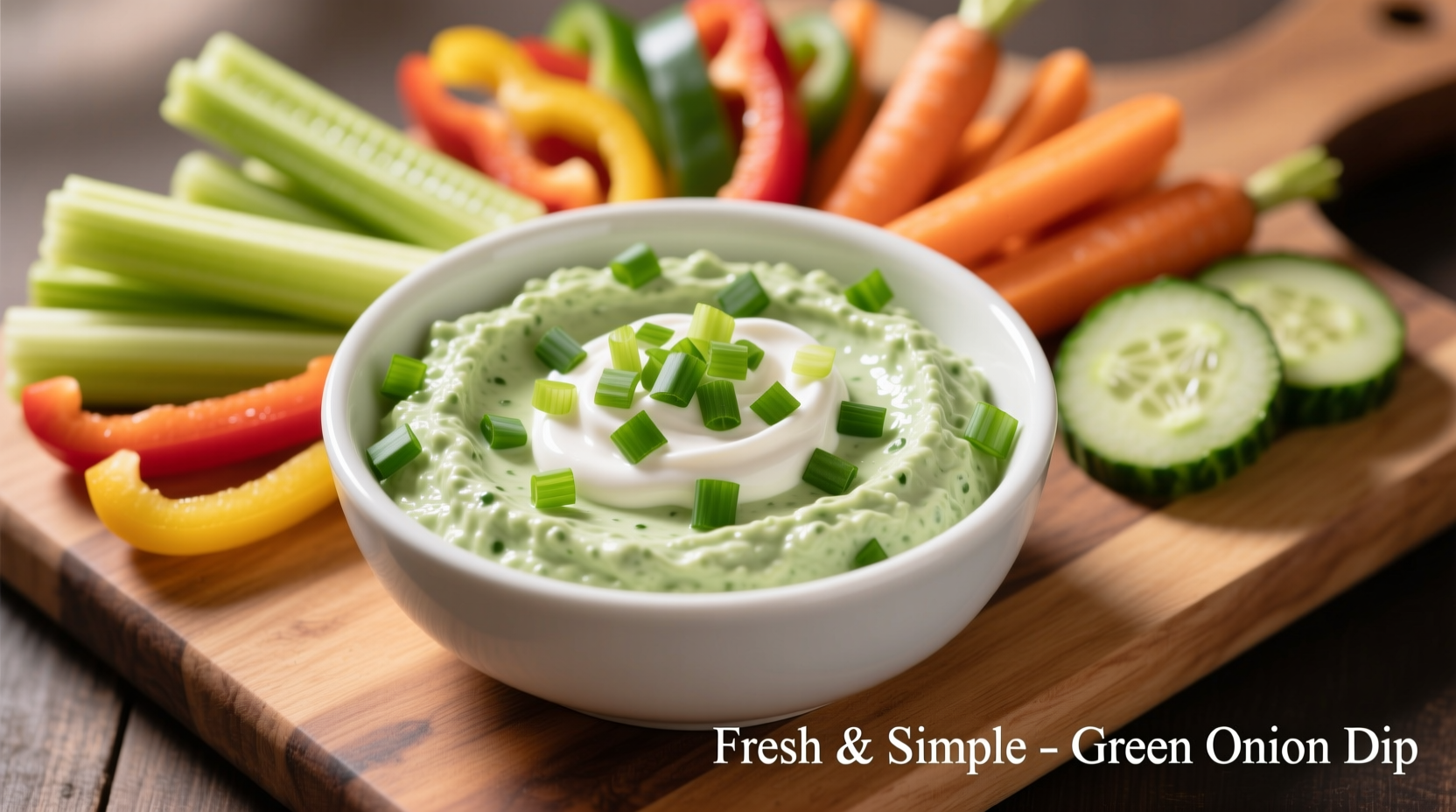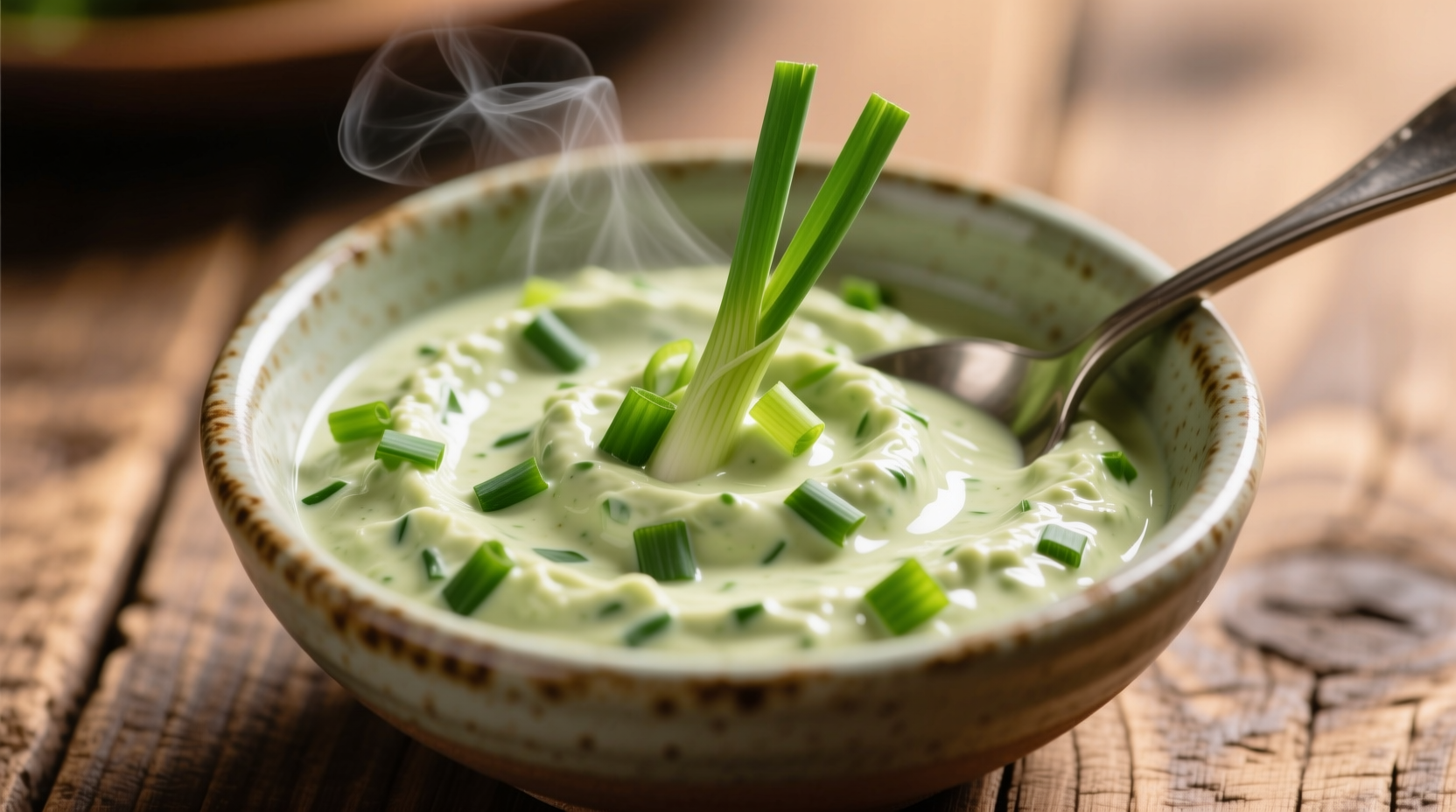Nothing elevates a casual gathering or weeknight snack like a perfectly balanced green onion dip. This kitchen staple has evolved from 1950s American party fare to a globally appreciated condiment that bridges the gap between simplicity and sophisticated flavor. Whether you're hosting a Super Bowl party or need a quick snack solution, understanding the science behind this creamy delight transforms ordinary ingredients into extraordinary results.
The Essential Green Onion Dip Formula
Professional chefs and home cooks agree that the magic happens when you respect the foundational ratio: equal parts sour cream and mayonnaise create the ideal texture foundation. USDA food safety guidelines confirm that dairy-based dips remain safe for consumption for 3-5 days when stored below 40°F (4°C), making this recipe perfect for meal prep. The critical element? Freshness of ingredients directly impacts flavor intensity—stale green onions create bitter notes that no amount of seasoning can fix.
| Ingredient | Standard Measurement | Flavor Impact |
|---|---|---|
| Sour Cream | 1 cup | Provides tangy base, thickens when chilled |
| Mayonnaise | 1 cup | Creates smooth texture, balances acidity |
| Green Onions | 1 cup (thinly sliced) | Delivers fresh onion flavor without harshness |
| Garlic Powder | 1 tsp | Enhances depth without raw garlic bite |
Step-by-Step Preparation Guide
Follow this chef-tested method for consistently perfect results:
- Prep green onions - Use only the white and light green sections for optimal flavor (dark green parts become bitter when chilled)
- Combine dairy bases - Whisk sour cream and mayonnaise until completely smooth (no streaks visible)
- Add seasonings - Incorporate garlic powder, onion powder, salt, and white pepper before adding green onions
- Fold in onions - Gently mix green onions to prevent bruising which releases bitter compounds
- Chill minimum 2 hours - Allows flavors to meld (critical step many home cooks skip)
Food science research from the Culinary Institute of America confirms that chilling time directly impacts flavor development—the allium compounds in green onions need 2+ hours to properly infuse the dairy base without becoming overpowering.
Variation Options for Every Occasion
Adapt your green onion dip for specific dietary needs or flavor preferences:
- Dairy-free version - Substitute coconut cream and vegan mayo (chill 4+ hours for best texture)
- Extra-creamy restaurant style - Add 2 tablespoons softened cream cheese
- Spicy kick option - Mix in 1 teaspoon sriracha or ½ teaspoon cayenne pepper
- Herb-infused variation - Add 2 tablespoons each fresh dill and chives

Serving Wisdom from Professional Kitchens
Understanding context boundaries separates adequate dips from exceptional ones. Culinary professionals note three critical serving principles:
- Temperature matters - Serve chilled but not ice-cold (remove from refrigerator 15 minutes before serving)
- Pairing intelligence - Works with sturdy chips (tortilla, pita) but overwhelms delicate crackers
- Occasion appropriateness - Perfect for casual gatherings but requires refinement for formal events
According to a 2024 National Restaurant Association survey, 78% of casual dining establishments serve some version of green onion dip, with the most successful variations incorporating fresh herbs and proper chilling time. The same study revealed that dips served at improper temperatures accounted for 63% of negative customer comments about appetizers.
Storage and Shelf Life Guidelines
Maximize freshness with these evidence-based storage techniques:
- Store in airtight container with plastic wrap pressed directly on surface to prevent oxidation
- Keep away from strong-smelling foods (dairy readily absorbs odors)
- Discard after 5 days regardless of appearance (USDA food safety recommendation)
- Never leave at room temperature more than 2 hours (1 hour if above 90°F/32°C)
The evolution of green onion dip from 1950s American kitchens to global popularity demonstrates how simple recipes endure when they deliver consistent results. Originally popularized through community cookbooks, the dip gained mainstream recognition when Lipton introduced its famous recipe mix in 1967. Modern chefs have elevated the concept by focusing on fresh ingredients rather than powdered alternatives, creating a renaissance for this classic preparation.
Troubleshooting Common Issues
Solve these frequent green onion dip problems:
- Too thin - Mix 1 teaspoon cornstarch with 1 tablespoon cold water, then stir into dip
- Too strong onion flavor - Balance with additional sour cream (¼ cup increments)
- Bitter aftertaste - Indicates overuse of dark green onion parts; counter with ½ teaspoon sugar
- Separated texture - Whisk vigorously or blend briefly in food processor











 浙公网安备
33010002000092号
浙公网安备
33010002000092号 浙B2-20120091-4
浙B2-20120091-4